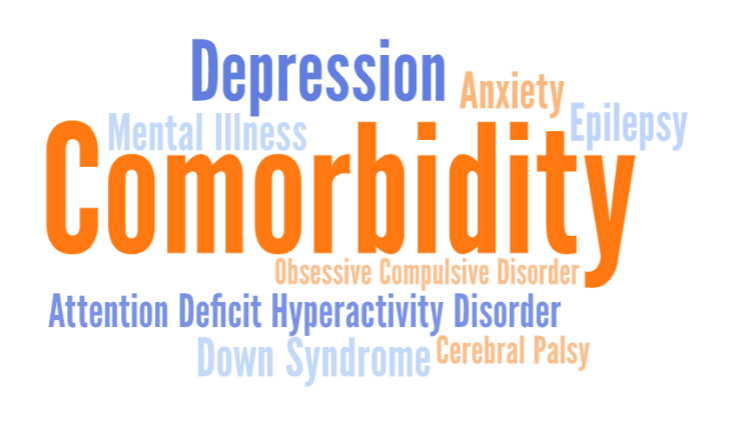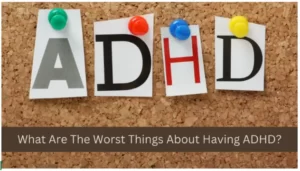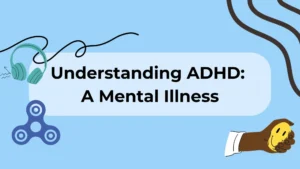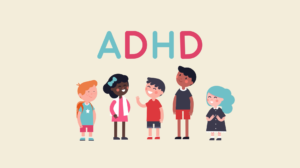
Is It Just ADHD? Exploring Comorbid Conditions
Imagine a world where focusing on a single task feels like trying to wrangle a runaway train. Thoughts dart around like fireflies, and staying still is an act of constant resistance. This isn’t just a vivid metaphor; it’s the lived experience of millions with Attention Deficit Hyperactivity Disorder (ADHD).
But ADHD is more than just inattention and fidgeting. It’s a multifaceted condition often accompanied by a constellation of other mental health challenges.
This article dives deep into the complexities of ADHD, exploring the frequent occurrence of comorbid conditions and the unique challenges they present. We’ll navigate the roadblocks to diagnosis and treatment and, ultimately, equip you with strategies to manage ADHD and unlock your full potential.
This article discusses various aspects of ADHD and comorbid conditions. We’ll explore:
- What comorbidity is and why it’s prevalent with ADHD
- Common mental health conditions that co-occur with ADHD
- The challenges of diagnosing and treating ADHD with comorbidities
- Strategies for managing ADHD and comorbid conditions
Understanding Comorbidity and ADHD
Comorbidity simply means having two or more diagnoses at the same time. In the case of ADHD, research suggests a high rate of comorbidity, with estimates ranging from 60% to 90% of children and adults with ADHD having at least one co-occurring condition.
This high rate suggests a potential link between the underlying causes of ADHD and other mental health conditions.
There are several possible explanations for this link. It’s possible that shared risk factors, such as genetics or prenatal exposures, contribute to both ADHD and other disorders. Moreover, the challenges associated with ADHD, like difficulty focusing in school or managing social interactions, can lead to secondary conditions like anxiety or depression.
While many suggest stimulant medication like Adderall as a short-term solution to manage ADHD, it requires a more comprehensive approach, including medication and therapy. You can always discuss your options with a mental health expert for a better solution suited to your condition.
Common Comorbid Conditions with ADHD
Several mental health conditions frequently co-occur with ADHD. Here’s a closer look at some of the most common:
- Anxiety Disorders: Anxiety disorders, characterized by excessive worry and fear, are highly prevalent among individuals with ADHD. Studies suggest that up to 80% of adults with ADHD also experience an anxiety disorder. The constant struggle to focus and manage impulsivity can contribute to anxiety, while anxiety itself can worsen ADHD symptoms.
- Mood Disorders: Depression is another frequent comorbidity with ADHD. The frustration and low self-esteem associated with ADHD can make individuals more susceptible to depression. Conversely, symptoms of depression, like fatigue and difficulty concentrating, can mimic ADHD.
- Learning Disabilities: Learning disabilities, such as dyslexia or dysgraphia, often co-occur with ADHD. Both conditions can make it challenging to learn and succeed in school.
- Substance Use Disorders: Individuals with ADHD are at an increased risk for developing substance use disorders. Self-medication with stimulants or alcohol to cope with ADHD symptoms can lead to addiction.
- Oppositional Defiant Disorder (ODD) and Conduct Disorder (CD): These disorders involve disruptive and defiant behaviors. While some of these behaviors can overlap with ADHD, ODD and CD are distinct diagnoses with their treatment approaches.
Challenges of Diagnosis and Treatment
The presence of comorbid conditions can make diagnosing ADHD more complex. Symptoms of other disorders can mimic or mask ADHD symptoms, leading to misdiagnosis or delayed diagnosis. Furthermore, treatment for ADHD may need to be adjusted to address the specific needs of individuals with comorbidities.
For example, if someone with ADHD also has anxiety, a stimulant medication used to treat ADHD could exacerbate anxiety symptoms. In this case, a different medication or a combined treatment approach that addresses both ADHD and anxiety might be necessary.
Living with ADHD and Comorbid Conditions
Managing ADHD alongside other mental health conditions can be challenging, but it’s absolutely possible. Here are some strategies that can help:
- Seek a Comprehensive Evaluation: A thorough evaluation by a qualified mental health professional is crucial for accurate diagnosis and development of an effective treatment plan. Be transparent about all your symptoms and experiences.
- Learn About Your Conditions: Educate yourself about ADHD and any comorbid conditions you have. The more you understand your unique challenges, the better equipped you’ll be to manage them.
- Develop Coping Skills: There are a variety of skills that can help manage ADHD and comorbid conditions. These may include time management techniques, organization strategies, stress management tools, and communication skills.
- Seek Professional Help: Therapy can provide valuable support and guidance, teaching you coping mechanisms and strategies for managing ADHD and co-occurring conditions.
- Consider Support Groups: Connecting with others who understand your experiences can be incredibly helpful. Support groups can provide a safe space to share challenges, learn from others, and feel less alone.
- Maintain a Healthy Lifestyle: Eating a balanced diet, getting regular exercise, and getting enough sleep are essential for both physical and mental health. These healthy habits can improve overall well-being and make managing ADHD and comorbid conditions easier.
Living with ADHD and a comorbid condition can be demanding, but with proper diagnosis, treatment, and self-care strategies, individuals can thrive.
By understanding the complexities of comorbidity and taking proactive steps toward managing their conditions, individuals with ADHD and comorbid conditions can forge a path toward a fulfilling and successful life.
This journey requires not just navigating the complexities of comorbidity but also embracing the unique strengths that often accompany ADHD, such as creativity, boundless energy, and a zest for life.
With the right support system, effective treatment plans, and a commitment to self-care, individuals with ADHD and comorbid conditions can not only manage their challenges but also thrive in all aspects of their lives.


